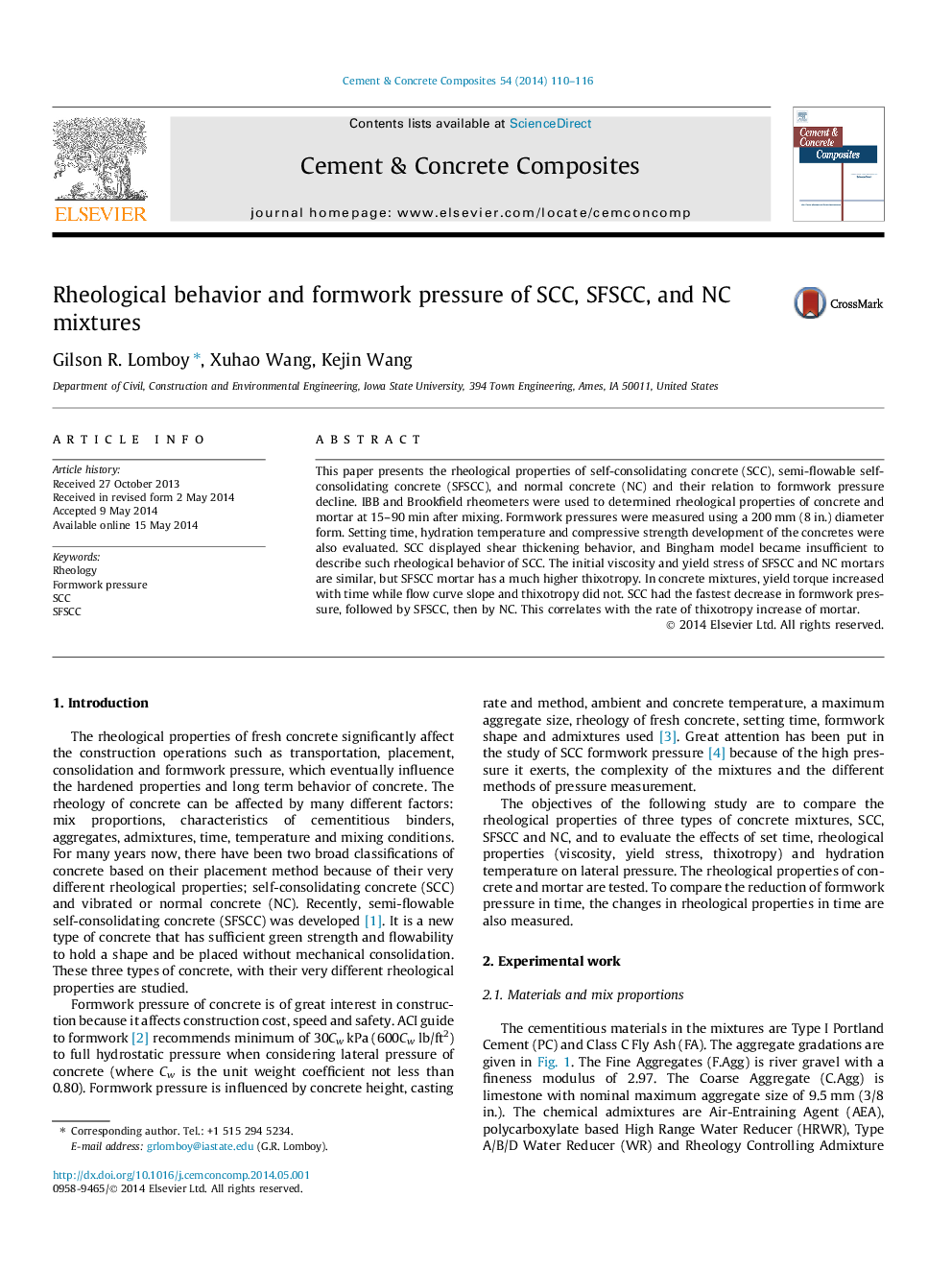| Article ID | Journal | Published Year | Pages | File Type |
|---|---|---|---|---|
| 1454597 | Cement and Concrete Composites | 2014 | 7 Pages |
This paper presents the rheological properties of self-consolidating concrete (SCC), semi-flowable self-consolidating concrete (SFSCC), and normal concrete (NC) and their relation to formwork pressure decline. IBB and Brookfield rheometers were used to determined rheological properties of concrete and mortar at 15–90 min after mixing. Formwork pressures were measured using a 200 mm (8 in.) diameter form. Setting time, hydration temperature and compressive strength development of the concretes were also evaluated. SCC displayed shear thickening behavior, and Bingham model became insufficient to describe such rheological behavior of SCC. The initial viscosity and yield stress of SFSCC and NC mortars are similar, but SFSCC mortar has a much higher thixotropy. In concrete mixtures, yield torque increased with time while flow curve slope and thixotropy did not. SCC had the fastest decrease in formwork pressure, followed by SFSCC, then by NC. This correlates with the rate of thixotropy increase of mortar.
